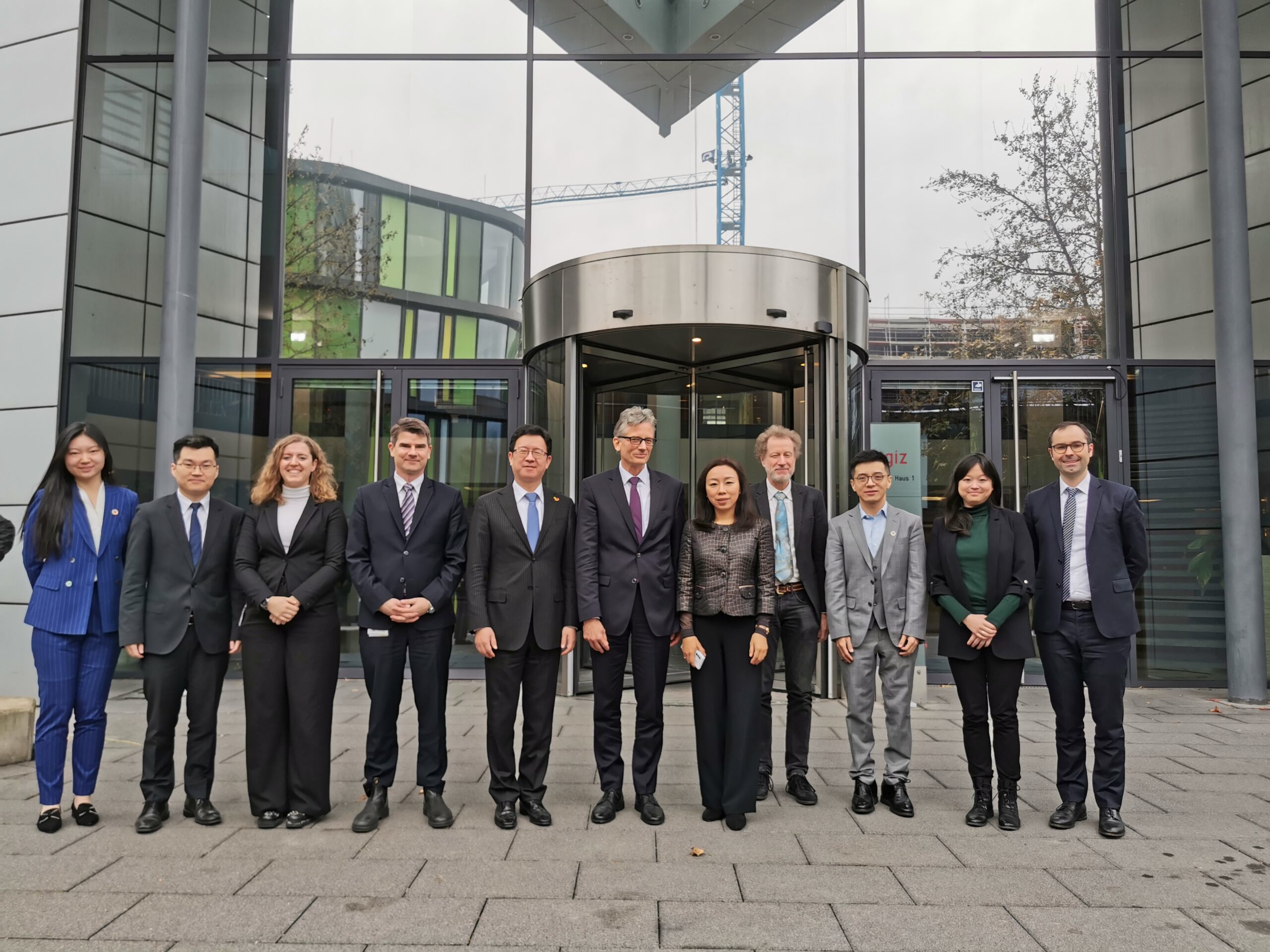The Sino-German Forum “New Partnership for Sustainable Development” was successfully held in Munich, Germany on November 13, 2017. It was hosted by the German Federal Ministry for Eco-nomic Cooperation and Development (BMZ), and co-organized by UNIDO’s Investment and Tech-nology Promotion Office (ITPO) Bonn and the Sino-German Center for Sustainable Development (CSD).
The one-day forum brought together policy makers, business representatives, research institutions, as well as implementing organizations from China, Germany and international organizations to exchange views on ‘development cooperation and business engagement in sustainable develop-ment, and to discuss the future direction of cooperation under the framework of the CSD’, said Ms. Liang Hong, the Deputy Director General of the Department of International Trade and Economic Affairs in the Ministry of Commerce of China, at the beginning of the forum, setting a framework for the discussion.
‘The world has an enormous need for development cooperation’, said Ms. Gisela Hammerschmidt, the Director for Asia in the German Federal Ministry for Economic Cooperation and Development (BMZ). China is a development world champion, and that’s why ‘Germany is seeking to partner with China in finding answers to the big global issues including poverty, inequality and climate change’.

A successful trilateral cooperation can benefit all partners at the same time. Dr. Sven Grimm from German Development Institute believes that through trilateral work, “Northern” donors can increase their cost-effectiveness of development projects; “Southern” providers can strengthen the technical capacity for their South-South cooperation; and the impact of the two strands of work on beneficiary countries can be better coordinated and scaled-up.
However, the challenges are also big. ‘Mobilization of committed northern and southern develop-ment partners from all sectors is a prerequisite’ for a successful triangular cooperation, according to Dr. Gong Weixi, Senior Coordinator for South-South and Triangular Industrial Cooperation in UNIDO. Joint effforts from multiple actors will mean higher coordination and management cost, more complicated and longer designing stage, and additional commitment to sustain the projects.
Among the multiple actors, the role of the private sector is unneglegible. ‘Nine out of ten Euros that are invested in developing countries come from the private sector’, according to Ms. Hammerschmidt. And through developmentally sound and sustainable investments, German and Chi-nese companies are creating hundreds of thousands of jobs, said Christoph Kannengiesser from German-African Business Association.
However, how to properly engage private sector remains a question. Ms. Yuan Xiaohui from the Chinese Academy of International Trade and Economic Cooperation shared China’s experience and practice. ‘Instead of directly transferring financial support to recipient countries, China provides projects, materials, technology, and services which have been undertaken by Chinese companies’, and it is in this way that China tries to achieve mutual prosperity for both recipient countries and itself.
The importance of beneficiary countries to take ownership was emphasized several times through-out the discussion. According to Mr. Yiannis Neophytou from BMZ, it is both – necessary and im-perative. H. E. Yusuf Maitama Tuggar, Nigerian Ambassador in Berlin, pointed out how special economic zones can be one of the entry points where Germany and China can combine strengths in Nigeria. Other possible areas including vocational education and training, agriculture, textile and garment, infrastructure etc. were also raised.
The forum concluded with a joint presentation by Mr. Li Weijun and Mr. Hagen Ettner, the Chinese and German directors of the CSD, and a panel discussion on starting points for trilateral cooperation in Africa.




